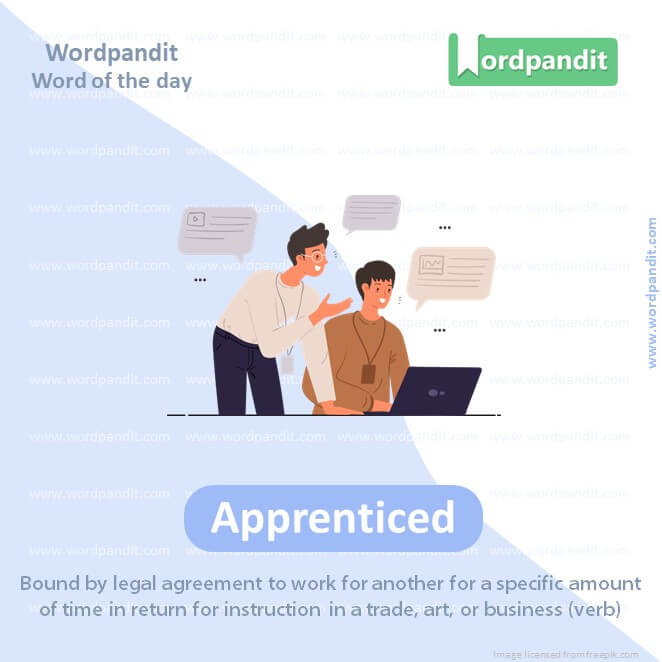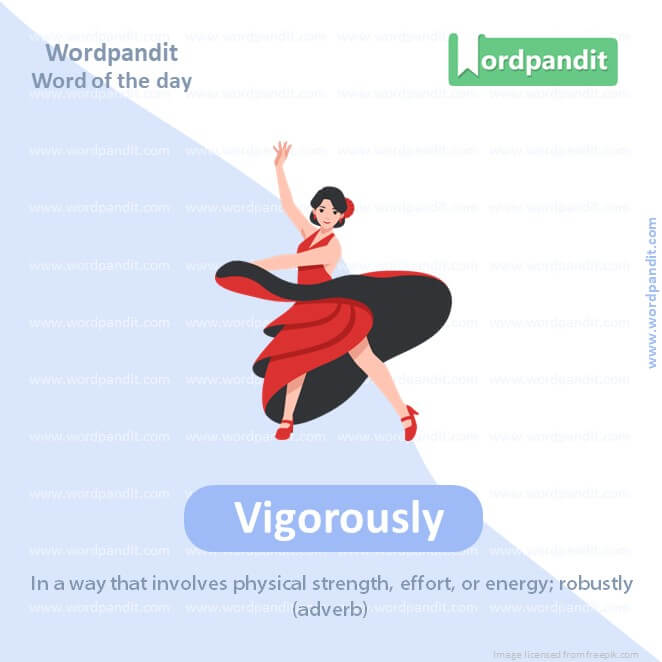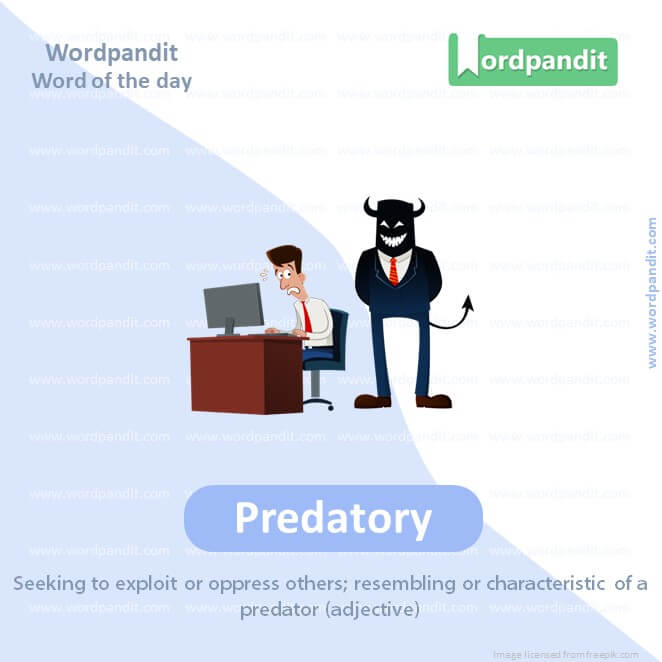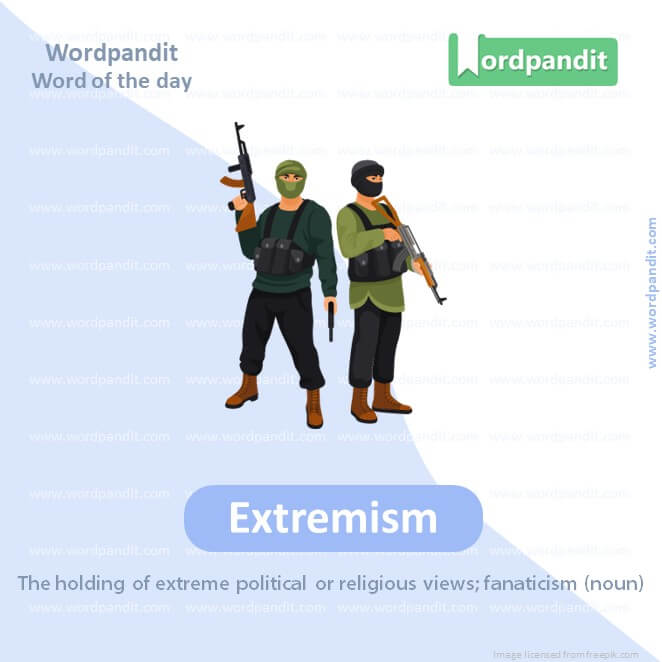Daily Vocabulary Words: List of Daily Used Words in Leading Indian Newspapers
Hi there. Welcome to this special section @ Wordpandit. Our endeavour here is straightforward: highlighting daily vocabulary words that you would come across in leading newspapers in the country. We have included the following newspapers in our selection:
• The Times of India
• The Economic Times
• Hindustan Times
• Mint
• Indian Express
We are putting in extensive work to develop your vocabulary. All you have to do is be regular with this section and check out this post daily. This is your repository of commonly used words; essentially, we are posting a list of daily used words. Hence, this has significant practical application as it teaches you words that are commonly used in leading publications mentioned above.
Visit the website daily to learn words from leading Indian newspapers.

WORD-1: Estranged
CONTEXT: It is important to understand that Bangladesh chose democracy, unlike its estranged twin Pakistan.
SOURCE: Indian Express
EXPLANATORY PARAGRAPH: Imagine having a friend who you used to play with every day, but now you don’t talk or play together anymore. That’s like being estranged. It means you’re no longer close or friendly; you’re sort of separated and not talking.
MEANING: No longer close or affectionate to someone; alienated (adjective).
PRONUNCIATION: ih-straynjd
SYNONYMS: Alienated, Disconnected, Separated, Distanced, Divorced, Isolated.
USAGE EXAMPLES:
1. He became estranged from his family.
2. They were estranged friends after the argument.
3. She lived estranged from her community.
4. After years of disagreement, they were completely estranged.
WORD-2: Dimensionality
CONTEXT: He studied optics, and mastered shading and perspective: this dimensionality became the supreme innovation of Renaissance art.
SOURCE: Times of India
EXPLANATORY PARAGRAPH: Think about a drawing on paper. It’s flat and has two dimensions: length and width. But a box has three dimensions because it has length, width, and height. Dimensionality is about how many ways something can be measured or the aspects it has.
MEANING: The quality or aspect of having dimensions, such as length, width, height (noun).
PRONUNCIATION: di-men-shuh-nal-i-tee
SYNONYMS: Depth, Aspect, Facet, Complexity, Extent, Breadth.
USAGE EXAMPLES:
1. The sculpture showed great dimensionality.
2. They studied the dimensionality of the space.
3. The film lacked emotional dimensionality.
4. His work explores the dimensionality of colors.

WORD-3: Apprenticed
CONTEXT: He apprenticed at a workshop, learning to sculpt bodies in motion, the folds of drapery, the harmonies of geometry.
SOURCE: Times of India
EXPLANATORY PARAGRAPH: Imagine learning to bake cakes by helping a baker. You’re not just watching; you’re actually doing the work and learning from the baker. That’s being apprenticed. It’s when you learn a job or skill by working for someone who is good at it.
MEANING: Bound by legal agreement to work for another for a specific amount of time in return for instruction in a trade, art, or business (verb).
PRONUNCIATION: uh-pren-tist
SYNONYMS: Trained, Instructed, Learnt, Mentored, Indentured, Schooled.
USAGE EXAMPLES:
1. She apprenticed with a famous chef.
2. He was apprenticed to a carpenter at a young age.
3. She apprenticed in a law firm for several years.
4. As a young artist, he apprenticed under a master.

WORD-4: Vigorously
CONTEXT: the Opposition campaigned vigorously for a caretaker government, failing which it threatened to boycott the polls.
SOURCE: Indian Express
EXPLANATORY PARAGRAPH: Imagine running as fast as you can in a race, using a lot of energy and strength. That’s doing something vigorously. It means you’re doing it with a lot of energy, force, or enthusiasm.
MEANING: In a way that involves physical strength, effort, or energy; robustly (adverb).
PRONUNCIATION: vig-er-us-lee
SYNONYMS: Strongly, Energetically, Forcefully, Enthusiastically, Fervently, Dynamically.
USAGE EXAMPLES:
1. He vigorously defended his theory.
2. The team played vigorously throughout the match.
3. She shook her head vigorously in disagreement.
4. The law was vigorously enforced.

WORD-5: Predatory
CONTEXT: She chose not to escape through the backdoor with Hanuman only to establish that a man must fight for a woman’s honour in such a demonstrable manner that predatory men would think twice before making women the spoils of war.
SOURCE: Indian Express
EXPLANATORY PARAGRAPH: Think about a lion hunting in the jungle. It’s looking for other animals to catch and eat. That’s being predatory. It means you’re acting like a hunter, looking to take advantage or harm others for your own benefit.
MEANING: Seeking to exploit or oppress others; resembling or characteristic of a predator (adjective).
PRONUNCIATION: pred-uh-tor-ee
SYNONYMS: Exploitative, Predacious, Ravenous, Aggressive, Hunting, Pillaging.
USAGE EXAMPLES:
1. The company had a predatory attitude towards competition.
2. Predatory animals are essential to the ecosystem.
3. He was known for his predatory business practices.
4. The bird of prey is an example of a predatory species.

WORD-6: Extremism
CONTEXT: The outcome of this struggle now will impact society and polity, with the possibility of political unrest and the export of extremism, if society falls prey to religious fundamentalism and sponsors of terrorism.
SOURCE: Indian Express
EXPLANATORY PARAGRAPH: Imagine someone who believes something so strongly that they won’t listen to anyone else’s ideas or opinions. That’s extremism. It’s having extreme views or actions, especially in politics or religion, and not accepting any other way.
MEANING: The holding of extreme political or religious views; fanaticism (noun).
PRONUNCIATION: ek-stree-miz-uhm
SYNONYMS: Fanaticism, Radicalism, Zealotry, Intolerance, Militancy, Dogmatism.
USAGE EXAMPLES:
1. Extremism in politics can be dangerous.
2. The group was known for its religious extremism.
3. He spoke out against extremism and hate.
4. The rise of extremism worries many people.
WORD-7: Circumscribe
CONTEXT: she detached herself from a society that wanted to circumscribe her within its rules and deny her equity as a woman.
SOURCE: Indian Express
EXPLANATORY PARAGRAPH: Imagine drawing a circle around something to keep it inside. That’s like circumscribing. It means to limit or restrict something, or to draw a line around it to set a boundary.
MEANING: To restrict something within limits; to draw a line around (verb).
PRONUNCIATION: ser-kum-skrahyb
SYNONYMS: Limit, Restrict, Confine, Bound, Encircle, Delimit.
USAGE EXAMPLES:
1. The law circumscribes how the property can be used.
2. His authority was circumscribed by the committee.
3. The playground is circumscribed by a fence.
4. They circumscribed the area for the investigation.
WORD-8: Retelling
CONTEXT: The sacred feminine dominates, have reserved a more robust role for them in retelling the epic.
SOURCE: Indian Express
EXPLANATORY PARAGRAPH: Imagine your friend telling you a story, and then you tell it to someone else in your own words. That’s retelling. It’s like repeating a story or event, but often with your own spin or understanding of it.
MEANING: Telling a story or event again, sometimes in a different way (noun).
PRONUNCIATION: ree-tel-ing
SYNONYMS: Recounting, Narrating, Repeating, Reciting, Describing, Relaying.
USAGE EXAMPLES:
1. His retelling of the event was very dramatic.
2. Each retelling of the tale added new details.
3. The movie is a retelling of a classic myth.
4. She enjoyed the retelling of her grandmother’s stories.
WORD-9: Interpretation
CONTEXT: it is this fluidity of interpretation that has layered their persona and made them more dynamic, complex and ever-evolving.
SOURCE: Indian Express
EXPLANATORY PARAGRAPH: Think about looking at a cloud and seeing a shape, like a dragon or a car. That’s your interpretation of what the cloud looks like. Interpretation is how you understand or explain something, like a song, a story, or even a cloud!
MEANING: The act of explaining or understanding the meaning of something (noun).
PRONUNCIATION: in-tur-pruh-tay-shuhn
SYNONYMS: Explanation, Understanding, Reading, Analysis, Rendering, Conception.
USAGE EXAMPLES:
1. His interpretation of the poem was unique.
2. The law is open to interpretation.
3. Her interpretation of the data was controversial.
4. The director’s interpretation of the play was innovative.
WORD-10: Generosity
CONTEXT: She crossed the Lakshmanrekha, a man-made limit, only to display her generosity of spirit and bore the consequence of trusting everybody by her measure.
SOURCE: Indian Express
EXPLANATORY PARAGRAPH: Imagine sharing your favorite toy with a friend or giving part of your lunch to someone who forgot theirs. That’s being generous. Generosity is when you’re kind and giving to others, sharing what you have, or helping without expecting anything in return.
MEANING: The quality of being kind and generous (noun).
PRONUNCIATION: jen-uh-ros-i-tee
SYNONYMS: Kindness, Altruism, Benevolence, Liberality, Magnanimity, Charity.
USAGE EXAMPLES:
1. Her generosity was known throughout the town.
2. He donated the money out of generosity.
3. The charity event showed great generosity.
4. Generosity is a valued trait in many cultures.
Vocabulary Meaning
In the ocean of language learning, ‘vocabulary meaning’ is akin to the colorful coral reefs that add depth and vibrancy to communication. Yet, infusing our interactions with this vibrancy is often a challenge for many language learners. The crux lies in effectively deciphering and employing the ‘vocabulary meaning’.
Learning ‘vocabulary meaning’ isn’t about merely gluing words to their definitions. It’s about forming a deep understanding and connection with these words that transcends rote learning. To gain a comprehensive grasp of ‘vocabulary meaning’, one needs to navigate beyond textbook definitions and commit to exploiting diversified resources such as novels, films, music, articles, and digital content. This allows one to encounter vocabulary in a variety of contexts and actual usage, giving deeper insight into their meaning.
However, understanding ‘vocabulary meaning’ involves another essential aspect—memory retention. Techniques such as spaced repetition and the Leitner System offer effective methodologies to maintain and consolidate the ‘vocabulary meaning’. Additionally, leveraging mnemonic strategies can help etch words into your memory by linking them with unique stories or imagery that are personal and easily recallable.
Another way of mastering ‘vocabulary meaning’ is by immersing yourself in the language. Engage in regular conversations with native speakers if possible or utilize language exchange platforms to practice your skills. This not only bolsters your understanding of how the vocabulary is used but also helps articulate the ‘vocabulary meaning’ in the societal and cultural contexts.
In conclusion, gaining a robust grasp of ‘vocabulary meaning’ is a journey rather than an end goal. It requires dedication, perseverance and most importantly, a multi-faceted approach that includes diversified resources, effective memory strategies, and real-life application. With these strategies in place, the depths of ‘vocabulary meaning’ are no longer daunting but become an enchanting exploration of language.













